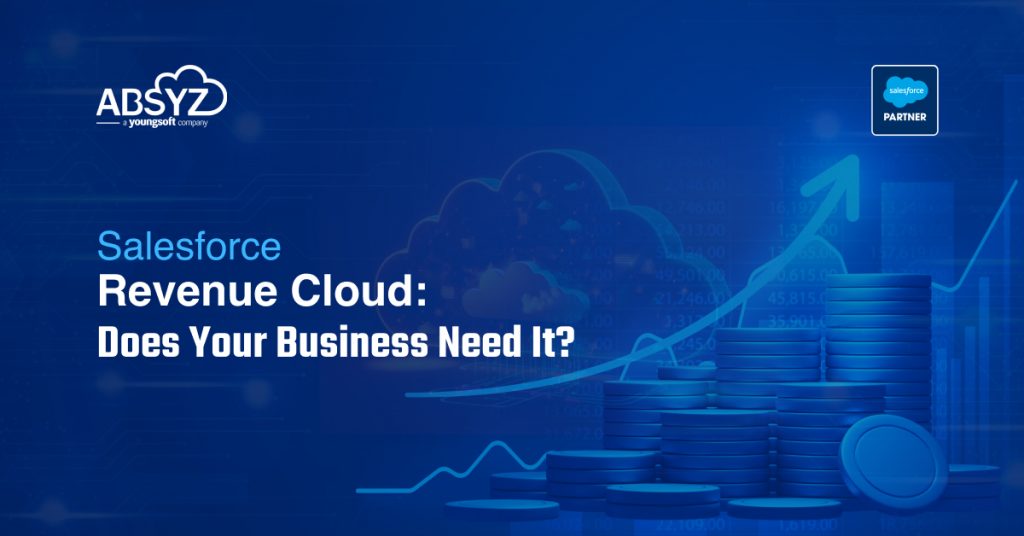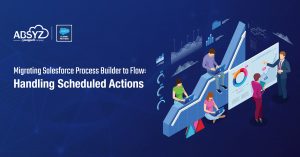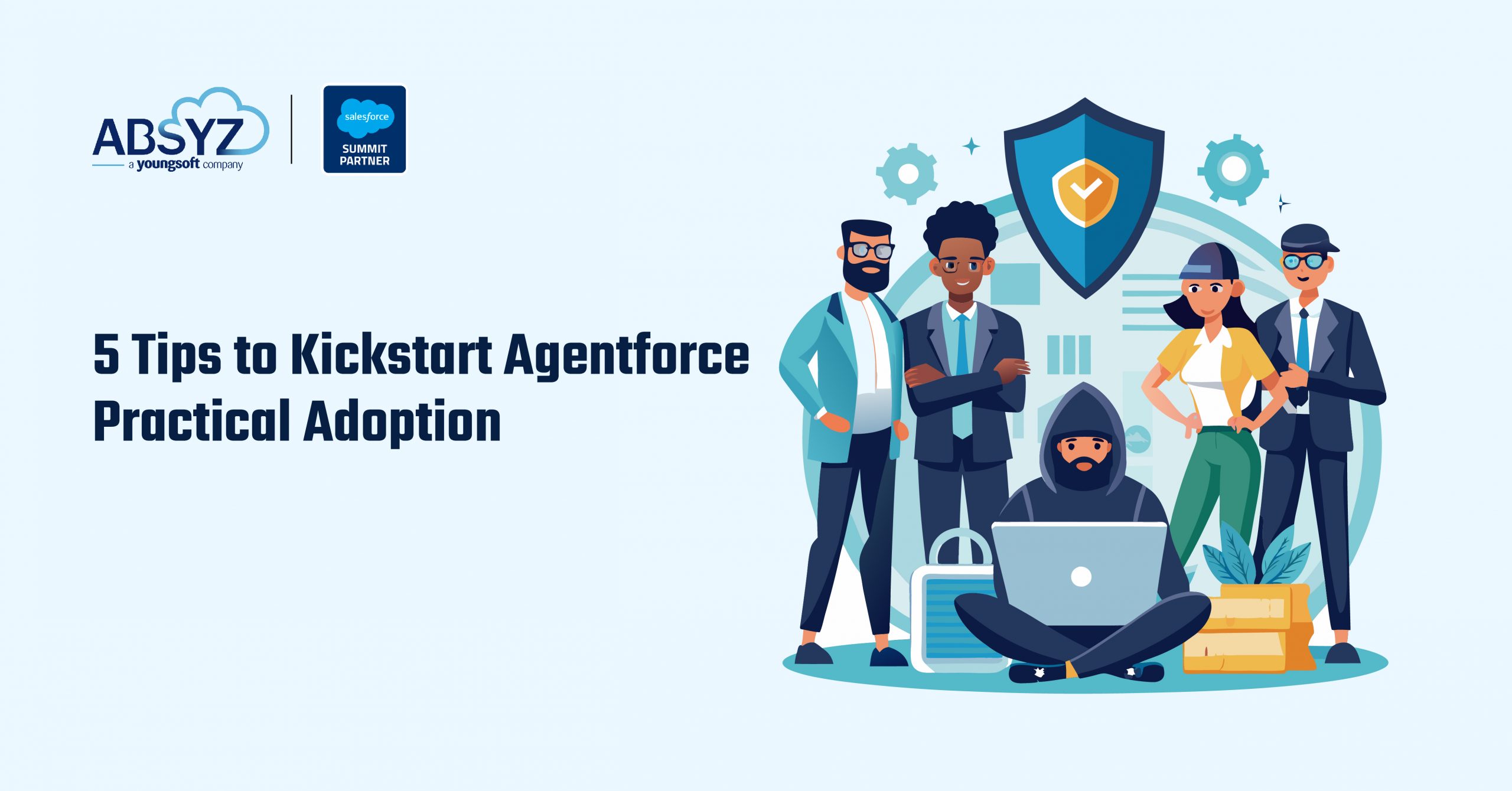What is Salesforce Revenue Cloud?
The Salesforce Revenue Cloud is a platform that simplifies the process of managing and optimizing revenue lifecycles. Its objectives are to boost checkout efficiency and track real-time revenue growth across all of your sales channels. It also provides centralized data about a customer’s transactions.
This platform, which is a component of Customer 360, enables you to link various departments within your business by integrating Subscription Management, Billing Software, and CPQ (Configuration, Price, and Quotation) with Sales Cloud and Service Cloud. Furthermore, the full potential of B2B commerce and Partner Relationship Management is utilized, consistently maintaining the customer at the center of the process.
Ultimately, Salesforce Revenue Cloud increases sales, productivity, and revenue generation by effectively managing configuration, pricing, quotation, and billing complexities across diverse sales channels. It also automates subscription processes to meet evolving customer preferences for digital self-service. Revenue Cloud integrates functionalities from Salesforce CPQ, Salesforce Billing, and Subscription Management to establish a single source and structure of information.
How Can We Use Salesforce Revenue Cloud
The Salesforce Revenue Cloud is an extremely powerful tool for growing your company, with so many amazing features.
It can be used for a variety of purposes, including:
1) Generate new revenue streams: You can introduce subscription services, use consumption pricing, or just develop a brand-new category of goods or services that you’ve always desired to provide.
2) Upsell and cross-sell: Enabling the team to perform upgrades, swaps, and add-ons is an easy way to empower them to confidently upsell and cross-sell.
3) Revenue Management: The Salesforce Revenue Cloud makes it simple to determine when a sale has been made, lowering the possibility of mistakes in revenue recognition and guaranteeing the accuracy of your financial records at all times.
4) Improve customer insights: Salesforce Revenue Cloud allows you to monitor how consumers use your subscription goods and utilize the data to make better decisions that will benefit both your business and your bottom line.
5) Solid analytics: By integrating data from many departments within your company, you can gain insights into your operations that will assist you in making better decisions.
Salesforce Revenue Cloud: Who Should Use It?
Large businesses and organizations are the target market for Salesforce solutions including Salesforce Financial Services Cloud, Salesforce Revenue Cloud, and Salesforce Sales Cloud. For businesses that need to coordinate their sales and marketing initiatives across several divisions, locations, and channels, this is the perfect solution. For this reason, major corporations such as IBM, PayPal, and BMW have adopted Salesforce.
Advantages of using Salesforce Revenue Cloud
As a result of switching to the world’s leading CRM, you will have the opportunity to:
1) Simplify all revenue-related data and processes for your business: Revenue Cloud lets you monitor and manage every step of the offer-sale-revenue cycle. Its integration of sales channels with Finance, accounting simplification, and automated contract renewal functionality outweigh the effects of using Salesforce Sales Cloud and Salesforce Service Cloud separately.
2) Provide outstanding customer experiences: Customer experience is just as important as the product or service itself, according to Salesforce’s 2020 State of the Connected Customer study. Customers may communicate with sales representatives, easily navigate different sales channels, and access their whole purchase history for individualized service using Revenue Cloud.
3) Increase business productivity by automating the revenue lifecycle: To get rid of human labor, out-of-date contracts, and mistakes, automate product-to-cash procedures, including contract renewals. Revenue Cloud accelerates collections, closes more deals, and increases revenue by integrating work tools and automating processes.
4) Provide clients flexibility: Enable sales teams the tools they need to quickly adopt new monetization tactics, access a variety of sales channels, and modify payment terms in response to shifting market conditions. This will ensure flexibility and adaptation.
5) Stimulate revenue development: By shortening sales cycles, improving customer databases, and providing guided sales alternatives for quicker, more precise quotes in recurring revenue models. Revenue Cloud makes subscription management, cross-selling, and steady growth easier.
Salesforce Revenue Cloud Pricing
There are two pricing tiers for Salesforce Revenue Cloud: the $75/month CPQ plan and the $150/month CPQ Plus plan. In addition, you can register for a free trial of the product before deciding to buy it.
Conclusion
To sum up, Salesforce Revenue Cloud provides a comprehensive solution for companies trying to improve customer experiences and streamline their revenue lifecycles. The administration of configuration, pricing, quote, and billing difficulties across varied sales channels is made easier by the integration of numerous departments and activities inside an organization. Businesses may use the platform to create new revenue streams, successfully upsell and cross-sell, manage revenue more effectively, obtain insightful customer data, and increase productivity across the board. For major enterprises and organizations looking to streamline their sales operations, Salesforce Revenue Cloud is helpful because of its emphasis on automation, simplification, adaptability, and revenue growth. However, before making a choice, prospective customers need to think about the pricing levels and assess whether the platform is appropriate for their particular requirements.














1 thought on “Salesforce Revenue Cloud: Does Your Business Need It?”
This is super helpful. Thanks for explaining the value of Revenue Cloud so clearly.